The Samsung Galaxy Z Flip is the iPhone moment folding phones have been waiting for
- 14 February, 2020 00:57

As soon as I picked up the iPhone back in 2007, I knew that the future of the smartphone had arrived. I feel the same way the Galaxy Z Flip.
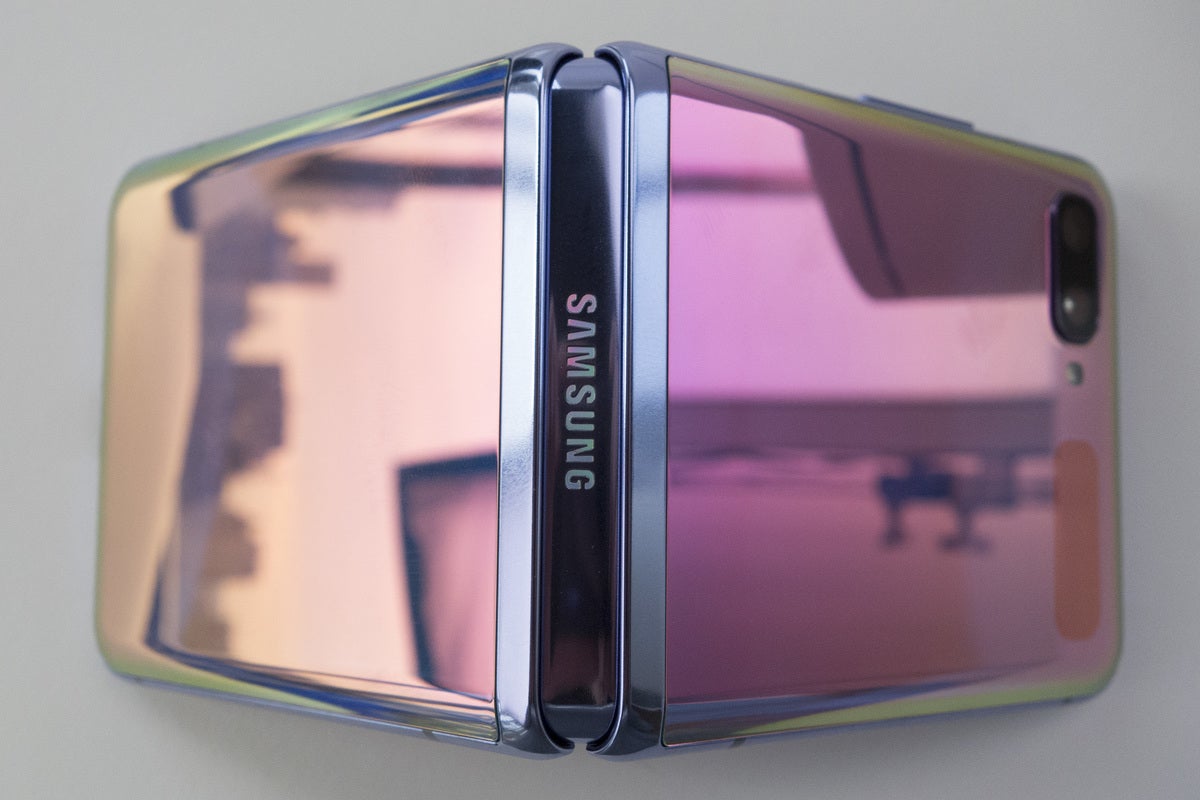 Michael Simon/IDG
Michael Simon/IDG
The outside of the Galaxy Z Flip is a thing of beauty.
When I flipped it open for the first time, the Galaxy Z Flip was as much of a revelation as the first time I slid my finger to unlock the original iPhone. The other folding phones I’ve used from Huawei, Royale, and Samsung have all felt a little off, almost like they were movie props meant to look like futuristic phones. From the plastic screens to the uncertain form factors, folding phones might be wow-worthy, but they haven’t felt like the kind of product that could change the way we think about smartphones.
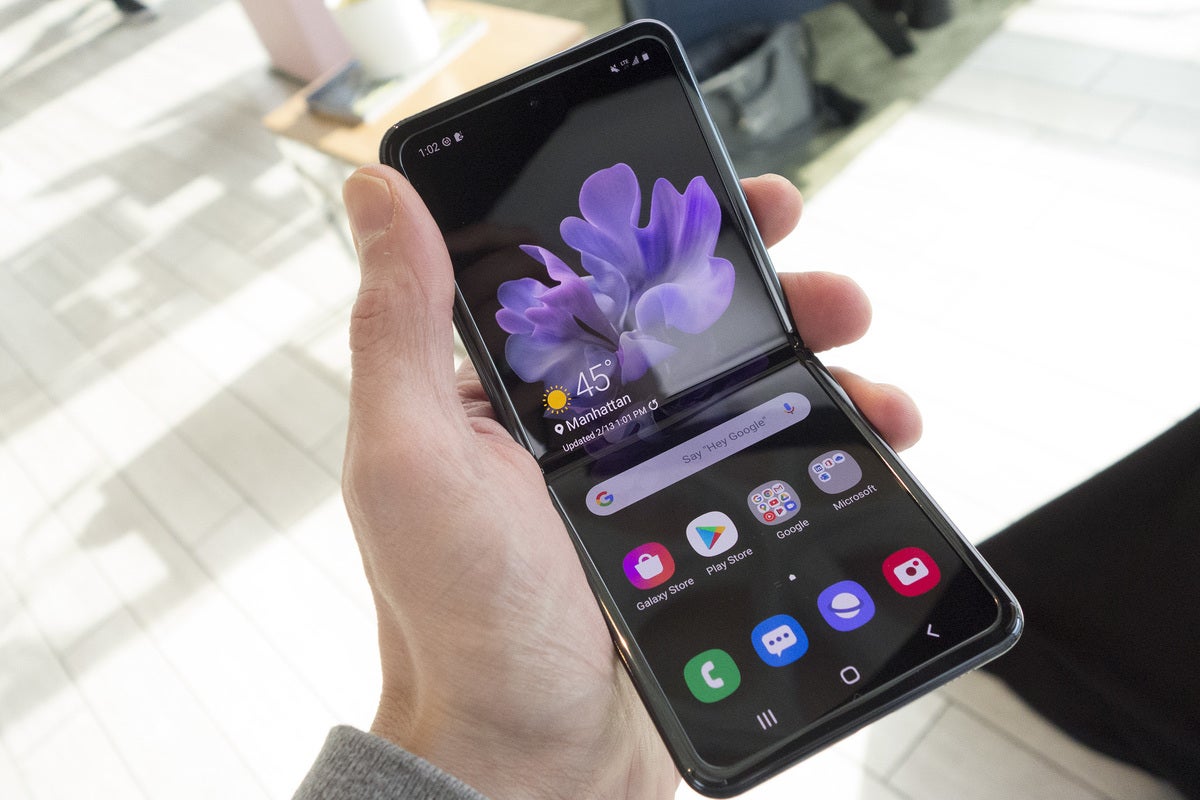 Michael Simon/IDG
Michael Simon/IDG
Folding the Galaxy Z Flip a bit when holding it helps with ergonomics.
That’s not the case with the Z Flip. Transforming it from a somewhat thick but very pocketable 3-inch square to a 6.7-inch full-screen smartphone is both nostalgic and futuristic, conjuring memories of the Nokia 2720 or the Motorola RAZR while simultaneously offering a truly postmodern smartphone experience. After using it for an hour, switching back to my Pixel 4 felt like going from power windows to a hand crank.
When closed, the enclosure feels as solid as the Galaxy Fold, with a hideaway hinge that nearly closes it perfectly flat. You’ll see a millimeter or so of light near the hinge, but it’s much flatter than the Fold. I can’t speak to whether the Flip’s hinge will hold up to months of use, but I didn’t see any obvious way for dust or debris to get in. It has a magnetic closure that’s extremely satisfying to close—and yes, snapping it shut will hang up on a call. The hinge mechanism feels sturdy without being sticky, but you’ll likely need two hands to open it. That’s not a criticism per se, but you can’t really casually open it as you did on the flip phones of old.
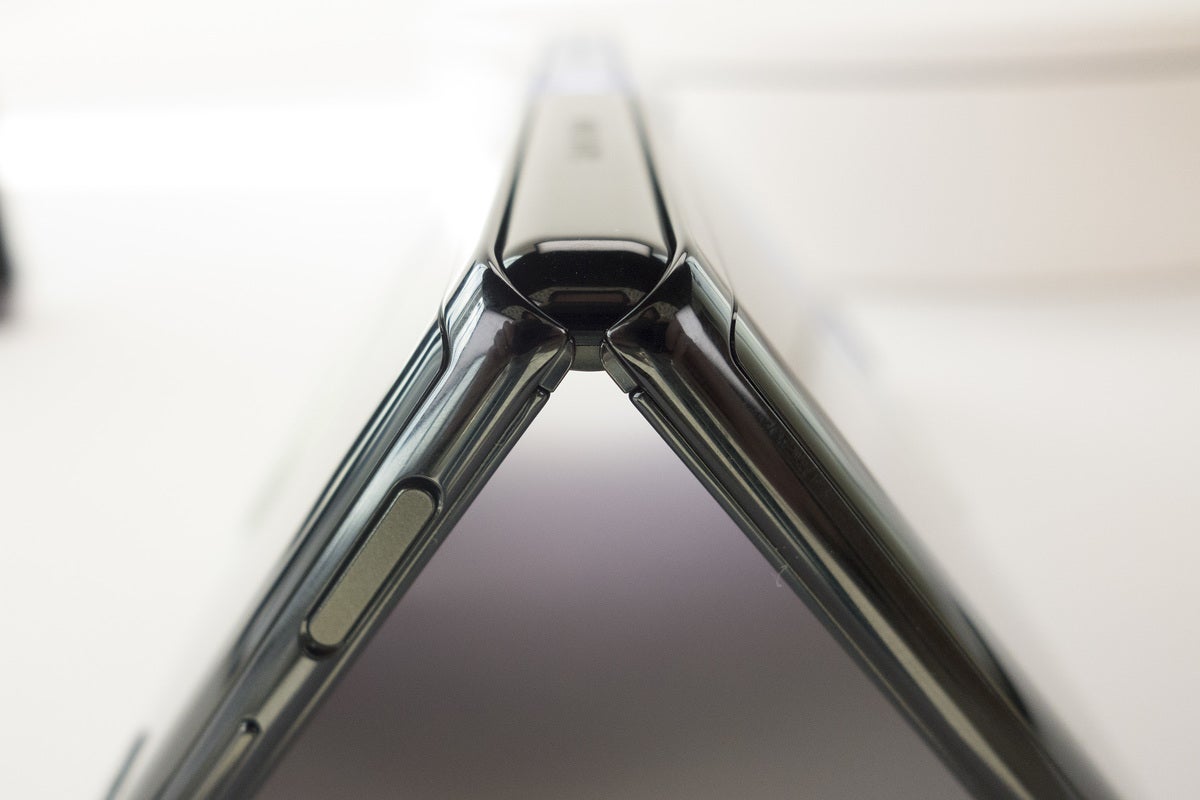 Michael Simon/IDG
Michael Simon/IDG
The Galaxy Z Flip’s hinge is sturdy enough to keep it open in a variety of positions.
But while the hinge on Flip Z is a clear improvement over the Galaxy Fold, the biggest difference is the screen. It’s still not perfect—in the right light, you can still see the hinge crease and if you run your finger over the center of the screen, you can feel the bump—but otherwise, the Galaxy Z Flip feels just like an S20 you can fold. The ultra-thin glass is smooth and sturdy, and I tapped, touched and swiped at the display just like I would on my regular phone with no perceptible difference between it and the Galaxy S20 next to it.
When opened, the Galaxy Z Flip looks something like a notch-less iPhone 11 with relatively thick but nicely symmetrical bezels, but they’re not distracting at all. If anything the extra bezel helps, since the phone’s narrow shape tends to encourage a palm-heavy grip. During my time with it, I didn’t experience any issues with accidental touches like I sometimes do on bigger Galaxy phones.
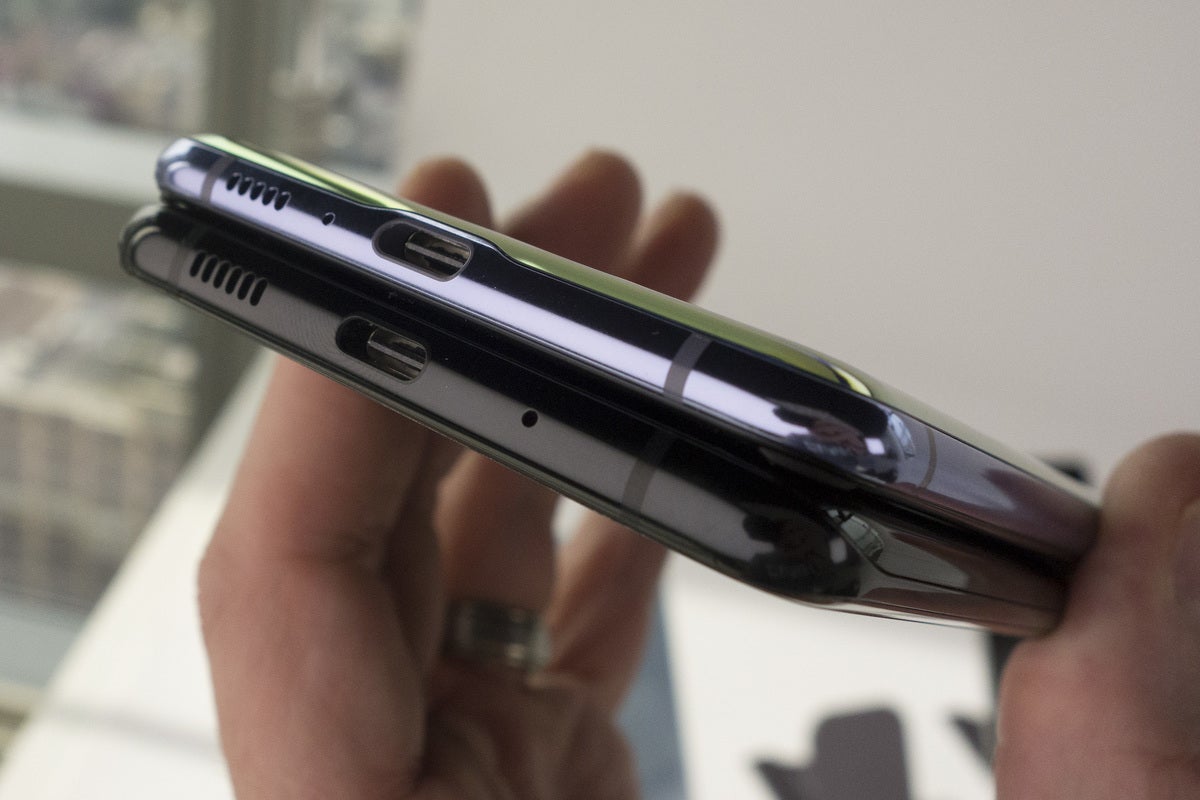 Michael Simon/IDG
Michael Simon/IDG
The Galaxy Z Flip is about as thick as an S20 when opened.
The Z Flip isn’t as speedy as the Galaxy S20, but the Snapdragon 855 processor inside it is plenty capable. It’s got a fingerprint sensor built into the side power button and the bottom half of the case has wireless charging. The 3,300mAh battery is a bit on the small size, but battery percentage didn’t drop too precipitously during my time with it. I did notice that the phone got a little warm, however, even though I wasn’t doing anything processor intensive.
A new kind of UX
But as nice as the Z Flip is when fully opened, it’s at its best when half-closed. That’s when Flex Mode kicks in, letting you rest the bottom half of the screen on a table and adjust the top for optimal viewing. (I found that when the screen was bent to around 75 degrees, it slowly drooped until it fell flat.) A few apps are optimized with bottom controls and a top viewing area—YouTube, Duo, Camera, and Gallery—but even ones that aren’t optimized work surprisingly well.
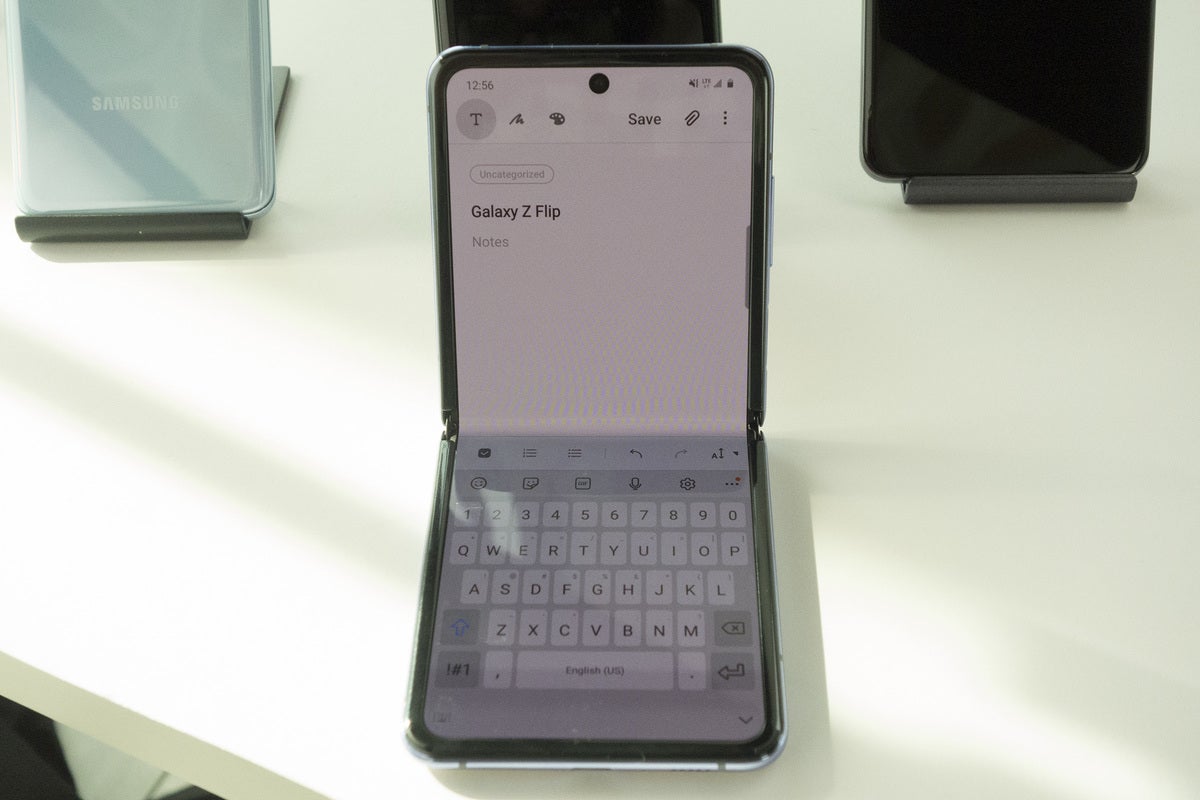 Michael Simon/IDG
Michael Simon/IDG
When using the Galaxy Z Flip on a table, the keyboard turns it into a tiny laptop.
For example, when typing a note, the keyboard naturally took up most of the bottom screen, so it felt like I was typing on a tiny laptop. And the flexibility was handy when holding the Flip as well. Bending the screen while using it helped with both glare and ergonomics, and made the 6.7-inch screen feel much more manageable than the Note 10+. There’s no distortion when images are spread across the fold, and you can still tap targets even if they’re in the middle of the fold.
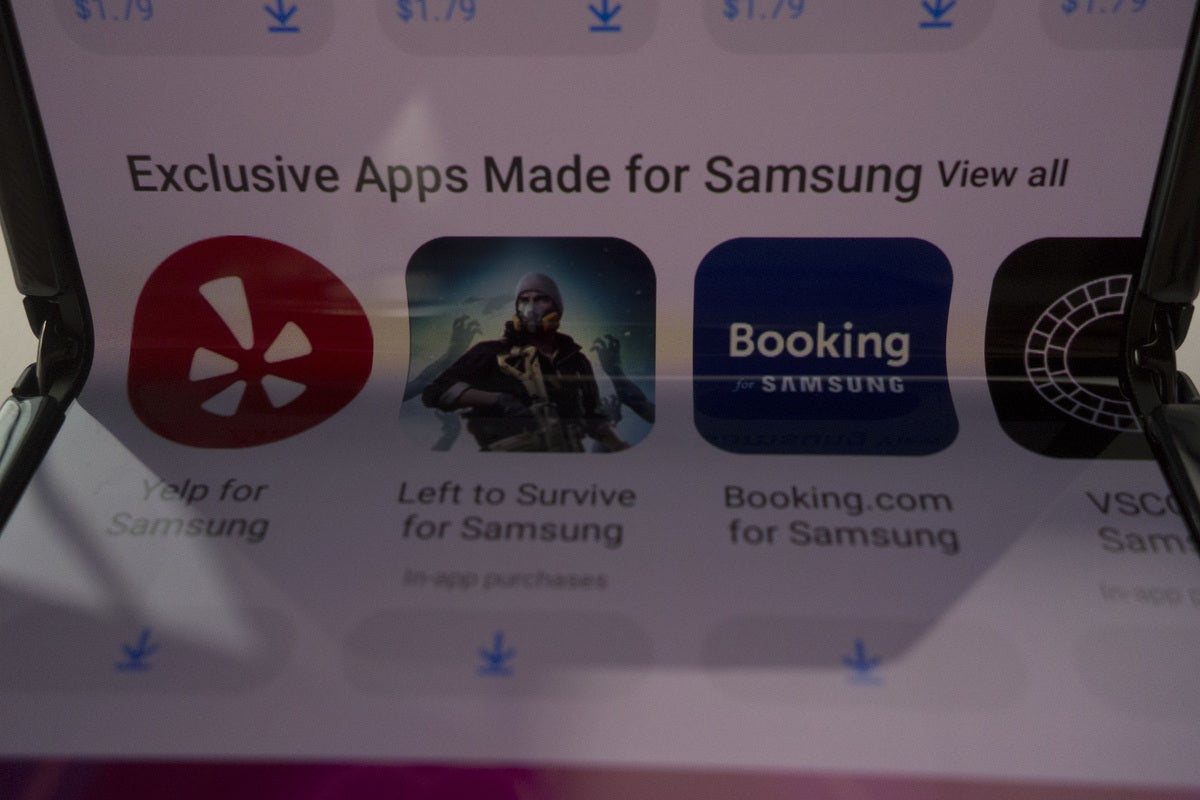 Michael Simon/IDG
Michael Simon/IDG
When an image spans the Galaxy Z Flip’s fold, there isn’t any distortion.
It’s surprising that more of Samsung’s own apps don’t take advantage of the Flip’s UI uniqueness, but those will come. For now, Camera is the best of the bunch, with nice flat controls and a full viewfinder, but I also liked the ability to swipe on the bottom screen to flip through photos in Gallery. Even the always-on display recognizes Flex Mode and will keep the time on the upper half.
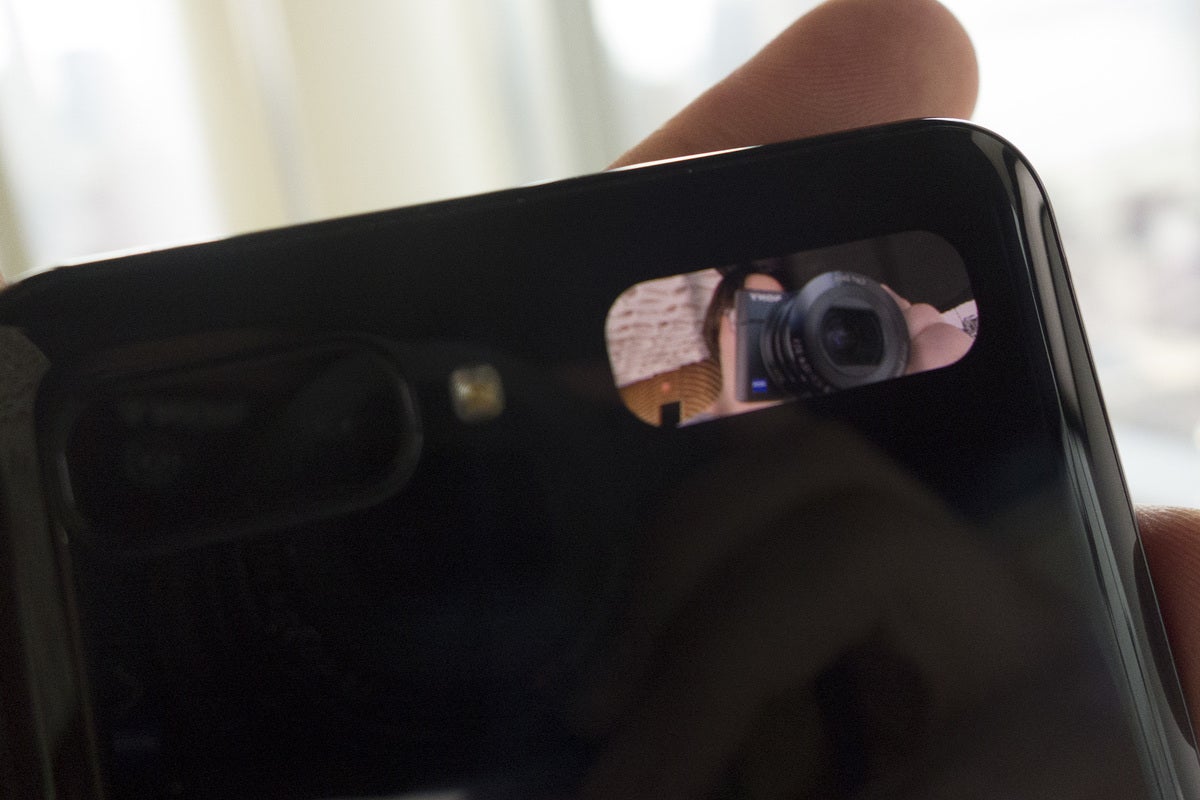 Michael Simon/IDG
Michael Simon/IDG
You can use the Galaxy Z Flip’s tiny front screen as a selfie viewfinder.
Speaking of the camera, the Flip has one gimmick that’s very fun: Using it as a selfie cam when closed. The only screen to speak of on the outside of the device is the 1.1-inch cover display (which seems even smaller in person), but in a pinch, you can double click the power button/fingerprint scanner to bring up a tiny image of yourself and swipe to switch between the wide and ultra-wide cameras. It’s definitely not something you’re going to use very often, but I was happy with the results.
You can also use the mini touch screen to control music and answer calls—a surprising amount of functionality for such a tiny display. While significantly smaller than the Fold’s 4-inch display, I think it’s ultimately an improvement in usability. It’s kind of like a smartwatch, with time, date, notification, simple controls so you don’t need to open your phone as often. And when you need to, it’ll open to the app you need, like Messages when a text arrives.
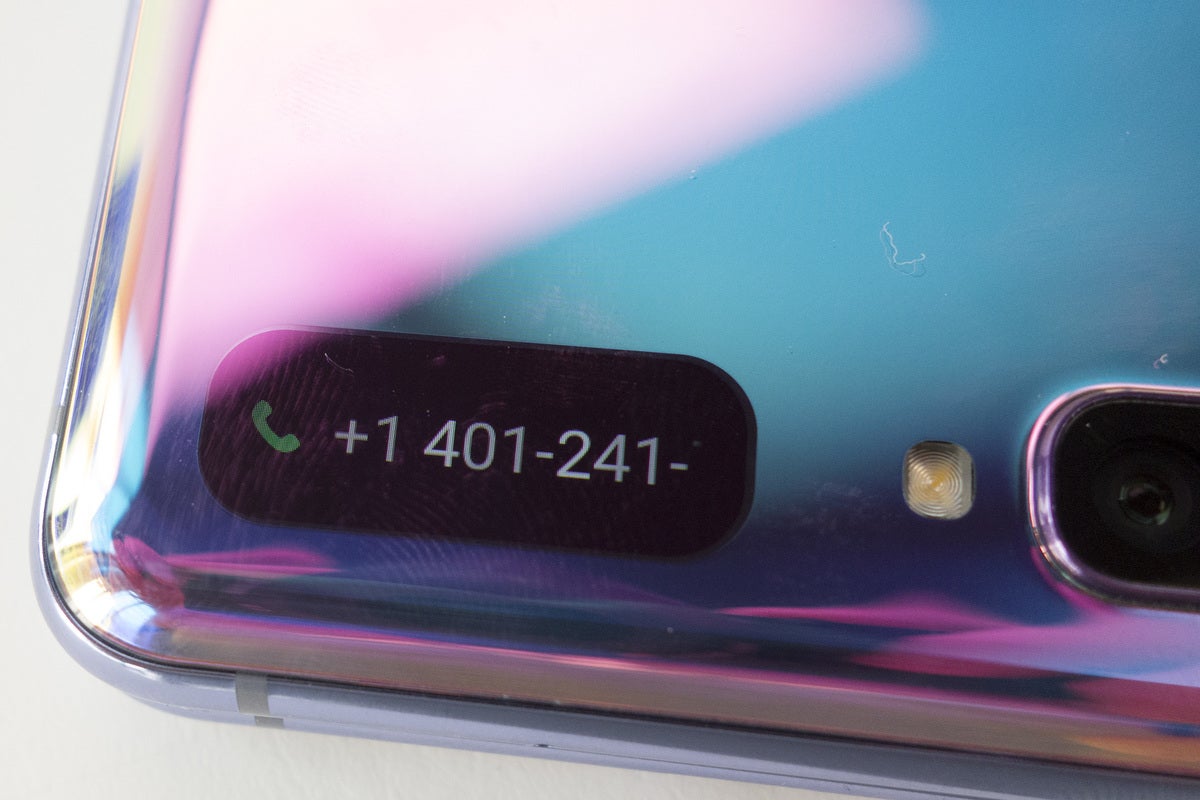 Michael Simon/IDG
Michael Simon/IDG
When you get a phone call, the Galaxy Z Flip’s tiny cover display will let you see who it is.
And that’s basically the story of the Galaxy Z Flip: versatility. Ever since I saw my first folding phone in action, I’ve been waiting for someone to get it right, from the screen to the form factor. I’m not sure the Galaxy Z Flip will be it, but it’s definitely closer than the Galaxy Fold was. And it doesn’t hurt that the Flip, while still expensive, is $600 cheaper than the Fold.
Like the original iPhone, folding phones still have many years of evolution ahead, but the Galaxy Z Flip is a tremendous second effort, especially in light of the Fold’s woes. Samsung might have nailed the hardest part of creating a revolutionary device: convincing people that change isn’t just coming, it’s worth the investment.





